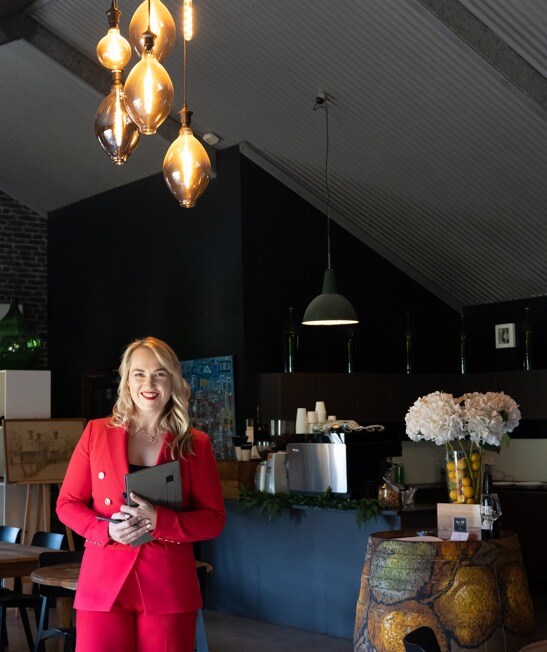Working from Home vs. Remote vs. Office: What’s the Best Fit for Hospitality?
The never ending conversation on Working from Home vs Remote vs the Office. There is so much nuance in this conversation as there is no right or wrong approach, no one-size-fits-all and so many circumstances to consider.
Work from home, go to the office, or embrace a hybrid model? The conversation around workplace flexibility has been evolving rapidly — and while many industries have embraced remote work, hospitality remains one of the sectors where it’s not always an option. But even within hospitality, leadership teams, corporate offices, and support roles often face the same flexibility debates as other industries. So, how do we strike the right balance?
A Shift in Perspective
Not too long ago, I was all for working from home. And let’s be honest — the past few years have proven it’s absolutely possible, even in industries where we once thought it could never work. However, my perspective has evolved. The reality is, this isn’t a black-and-white issue. It’s about balancing the needs of both businesses and employees while keeping mental health and workplace culture in mind.
Breaking Down the Pros and Cons
🏡 Working from Home
For roles that allow it, working from home offers undeniable perks:
✅ More time freedom
✅ Extra moments with loved ones
✅ No long commutes (hello, 2+ extra hours a day!)
✅ Savings on petrol, parking, and travel expenses
But there’s a flip side:
⚠️ Blurred boundaries between work and home life
⚠️ Social isolation, which can impact mental well-being
⚠️ Reduced spontaneous collaboration, leading to creative stagnation
⚠️ Are you really using the 2+ commute hours for the things you said you would?
For some, working remotely is a dream. For others, it can lead to disengagement and a sense of disconnect from their team and company culture.
🏢 The Office Environment
While office work comes with challenges — commutes, expenses, and potential distractions, it also brings key benefits:
✨ Collaboration and team connection
✨ Face-to-face problem-solving
✨ Learning opportunities that happen naturally through proximity
✨ A clearer separation between work and personal life
However, for employees, a rigid office model can feel outdated if it doesn’t support flexibility for real-life commitments.
🌍 Hybrid Work: A Middle Ground?
Hybrid work models offer the best of both worlds: focused work time at home and structured collaboration in the office. But for this to work well, businesses must be intentional about:
🔹 Aligning in-office days so teams can truly collaborate
🔹 Offering flexibility with start and finish times
🔹 Supporting travel costs, where possible
🔹 Defining clear expectations to avoid burnout and disengagement
The Hospitality Challenge: When Remote Isn’t an Option
The hospitality industry presents unique challenges. A hotel receptionist, a restaurant server, or a housekeeping manager can’t work remotely. Their roles require a physical presence. This often creates an unspoken divide between operational teams and corporate employees who may have more flexibility.
So, how do we bridge that gap?
✅ Focus on flexibility in other ways by adjusting shifts, considering four-day workweeks, or offering wellness days
✅ Improve workplace culture through prioritising engagement, appreciation, and a sense of belonging
✅ Ensure fairness: if some employees get flexibility, how do you compensate those who can’t?
Mental Health Matters
One overlooked factor in the remote vs. office debate is mental health. As a business owner without an office, I know firsthand how isolation can creep in. Some thrive in solitude; others need human interaction to stay motivated.
🔹 Structure & Routine: The office environment naturally creates boundaries — helping to prevent overworking and burnout (in many but not all cases).
🔹 Connection & Collaboration: Those spontaneous coffee-break conversations? They matter. They foster belonging and innovation.
🔹 Work-Life Balance: Many remote workers struggle to ‘switch off,’ leading to exhaustion rather than freedom.
That’s why I advocate for at least 1–2 days in the office per week. Not as a mandate, but as a way to support well-being, foster relationships, and maintain strong team dynamics.
Finding What Works for Your Business
At the end of the day, there’s no one-size-fits-all approach. Organisations need to:
🚀 Communicate openly with employees about what works best
🚀 Focus on results rather than where work happens
🚀 Offer solutions that support well-being and engagement
Because workplace flexibility should benefit everyone, not just the employer.
And there is even more considerations in this entire topic - are you also a full time carer or an employee that also requires care? There are a variety of circumstances that require flexibility in all areas.
What’s Your Perspective?
Do you thrive in an office, love working from home, or prefer a mix? And if you’re in hospitality, how has flexibility (or lack thereof) impacted you? Let’s continue the conversation! 👇

